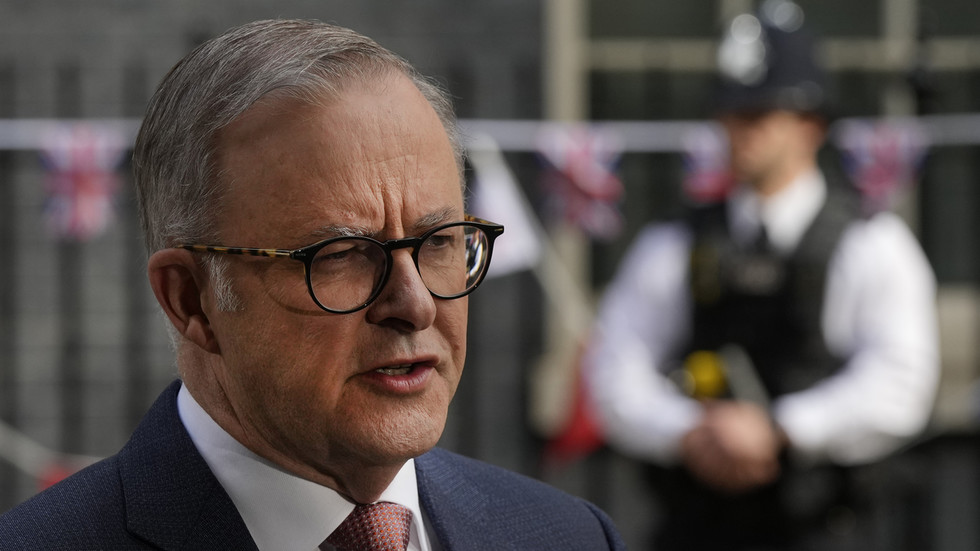
Anthony Albanese has opposed the persecution of the WikiLeaks founder, but refused to ask the US to release him
Anthony Albanese speaks to the media after meeting British Prime Minister Rishi Sunak at Downing Street in London, Britain, May, 5, 2023 © AP / Frank Augstein
Australian Prime Minister Anthony Albanese has declared that “there is nothing to be served” by keeping WikiLeaks founder Julian Assange behind bars. He claimed he is working behind the scenes with Washington to find a solution to the case, but described the process as “frustrating.”
“This needs to be brought to a conclusion,” Albanese told Australia’s ABC broadcaster from London on Thursday. “It needs to be worked though. We’re working through diplomatic channels, we’re making very clear what our position is on Mr. Assange’s case.”
Assange, an Australian citizen, was arrested in London in 2019 after Ecuador revoked his asylum status and allowed police officers to remove him from the country’s embassy in the British capital. He is currently held in Belmarsh Prison, where his legal team is fighting against his extradition to the US. American authorities have hit Assange with 17 charges under the Espionage Act, which can potentially carry the death penalty.
Read more
The charges stem from his publication of classified material obtained by whistleblowers. Most prominent among these was Chelsea Manning, who in 2010 gave WikiLeaks classified materials alleging US war crimes in Iraq and Afghanistan. Although Assange did not personally hack these materials, he was still charged for his role in publishing them.
Albanese has repeatedly condemned Assange’s detention, but has rebuffed demands from the journalist’s family to make the issue of extradition “non-negotiable” with the US. He declined to say on Thursday whether he would raise the topic with US President Joe Biden during a meeting of ‘Quad’ leaders in Australia next month, explaining that “the way diplomacy works is probably not to forecast the discussions that you will have or have had with leaders of other nations.”
“I know it’s frustrating. I share the frustration. I can’t do more than make very clear what my position is,” he told ABC.
Assange’s extradition was approved last summer by then-home secretary Priti Patel. However, the WikiLeaks founder’s lawyers are currently appealing that decision, arguing that his health and mental state are deteriorating, and extraditing him to a maximum-security US prison would be tantamout to torture.



